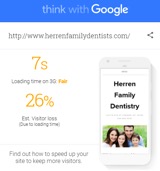The Backbone of SEO Strategy: The Importance of Keyword Research
 For digital marketers and small business owners, the landscape of online business is a complex, constantly evolving universe. At the heart of this universe lies the mighty black hole known as SEO – Search Engine Optimization. If SEO is the gravitational force that draws in potential leads and conversions, then proper keyword research is the astronomical technique we use to analyze and understand this force.
For digital marketers and small business owners, the landscape of online business is a complex, constantly evolving universe. At the heart of this universe lies the mighty black hole known as SEO – Search Engine Optimization. If SEO is the gravitational force that draws in potential leads and conversions, then proper keyword research is the astronomical technique we use to analyze and understand this force.
For ProspectaMarketing and its clients, understanding and leveraging the practice of keyword research is not just recommended, it’s essential for success.
Unlocking Your Dental Practice’s Potential
In the vast expanse of the internet, billions of searches are conducted daily. Some users are just browsing, but many are looking for specific products, services, or information. The words that they type into that little search box signify their current intent. By identifying the right keywords, you can meet your customers’ intent with precision, driving meaningful traffic to your site and potential customers through your door.
Proper keyword research allows you to understand what your target market is looking for. It’s the compass that guides your content and tells you what problems your audience is trying to solve, and how they want to solve them. It acts as a conversation starter, signaling where a user’s head is in the buying process. Without understanding this language, you’re speaking into the void.
Gaining the Edge with Data-Driven Insights
In the era of big data, informed decisions win over gut instincts. Keyword research provides you with actionable data, allowing you to ground your strategy in what’s measurable and observable. It reveals the competitiveness of certain terms and the potential market demand for products or services like yours.
This knowledge helps you decide on the types of content to create, how to structure your website, and even how to price your products or services. Armed with this information, you can pivot and customize your approach to suit changing consumer habits or industry trends.
The Path to Fine-Tuned Optimization
Imagine setting sail without a map. In SEO, keywords are the signposts that guide search engines to your website. When you neglect to research and target the right keywords, you’re essentially telling search engines to steer traffic elsewhere. By ranking for the right keywords, you also improve the visibility of your site, making it easier for potential customers to discover you.
Keyword research sets the stage for on-page and off-page optimization, helping you fine-tune everything from meta descriptions to inbound anchor text. It is the underpinning of every SEO task that you undertake. When each part of your site speaks to the search engines using the same language your customers do, you’ve hit the SEO sweet spot.
ProspectaMarketing understands the intricate link between keywords and your online success. We know there are no shortcuts to keyword research, but we also know the treasure trove of data it provides is worth every ounce of effort. By harnessing the power of keywords, you’ll not only increase organic traffic to your site, but you’ll also find your place in the search engine galaxy – and stay there.
ProspectaMarketing is an experienced Internet marketing firm specializing in dental practices and the tools of Internet marketing. We help you reach key prospects who are looking for what your practice has to offer. Our unique and thorough approach provides visibility, financial accountability, and ongoing refinement and improvement. You can find out more by contacting Lane Anderson toll-free at 1-877-322-4440 Ext 101, by email using the form on our Contact Us page, or online at ProspectaMarketing.com.


